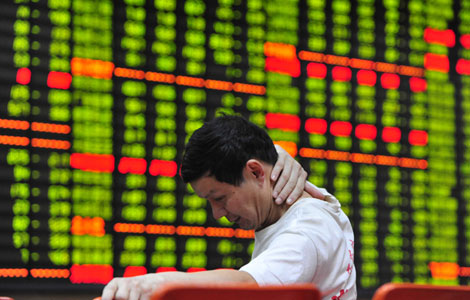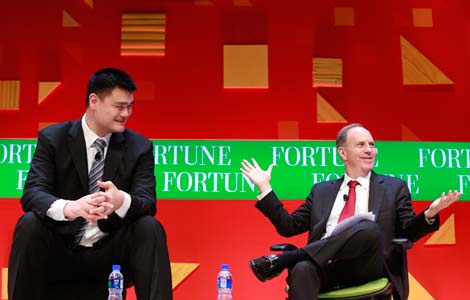
In 2010, Visa bought CyberSource Corporation, a leading provider of electronic payment, risk management, and payment security solutions that is currently registered in Shanghai.
Mary Chong, a partner at KPMG Advisory (China) Ltd, said various major foreign players are preparing to enter the Chinese market, cautiously at first, but they are likely to thrive once the market is fully opened.
"China may let them participate, but I don't think they will let them play a key role in the market," she said.
She added that China has to accept that it cannot control its domestic and non-foreign currency clearing business any more, especially if it hopes to continue growing Shanghai as a global financial center.
"I think they (foreign companies like Visa and MasterCard) can do credit card clearing."
A senior executive at the Payment & Clearing Association of China, who declined to be named, said that China will probably open its credit card payment market to foreign players, but it's hard to imagine such companies operating interbank clearing networks.
"Giants such as Visa and MasterCard have more experience and strength than UnionPay, and if they created a monopoly in any particular area, China's financial security would be in jeopardy," the source added.
But Liao said that China has opened its market to foreign banks, which hold more transaction and individual cardholder information than Visa, so it would be groundless to keep foreign players out of the market due to financial security fears.
As foreign players such as Visa eye the Chinese market, its biggest opponent UnionPay has been extending its global footprint to more than 140 countries and regions.
Xu Luode, UnionPay's president, said that 95 percent of debit cards issued by UnionPay in China are single-branded, while half of its credit cards are co-branded with international players such as Visa and MasterCard, a figure which the company will try to lower in the coming years as its own overseas presence improves.
 HK's new cruise terminal receives luxury liner
HK's new cruise terminal receives luxury liner
 Future points to carbon trading
Future points to carbon trading
 Seafood businesses flounder amid spending cut
Seafood businesses flounder amid spending cut
 Equities slump amid slow-growth estimates
Equities slump amid slow-growth estimates
 Auto show opens with much fanfare in Xi'an
Auto show opens with much fanfare in Xi'an
 Sunnylands summit fuels Chinese tourism interest
Sunnylands summit fuels Chinese tourism interest
 'Palace on wheels' on sale for $3.13m in Dubai
'Palace on wheels' on sale for $3.13m in Dubai
 Fortune smiles on Chengdu as forum concludes
Fortune smiles on Chengdu as forum concludes